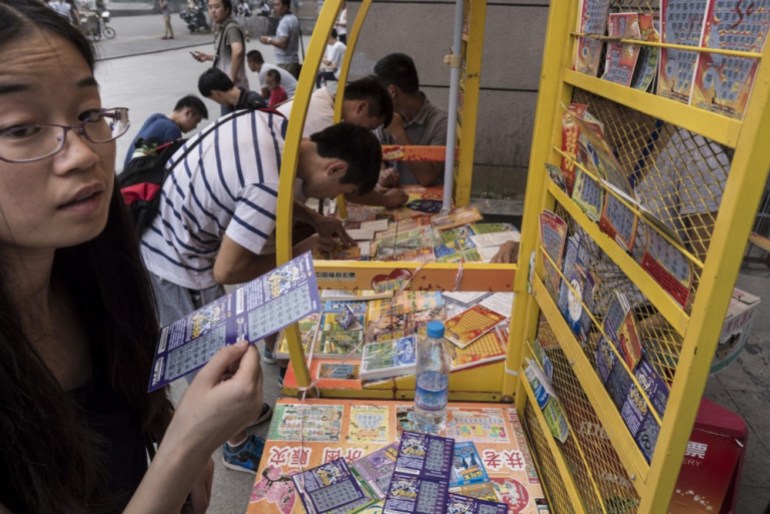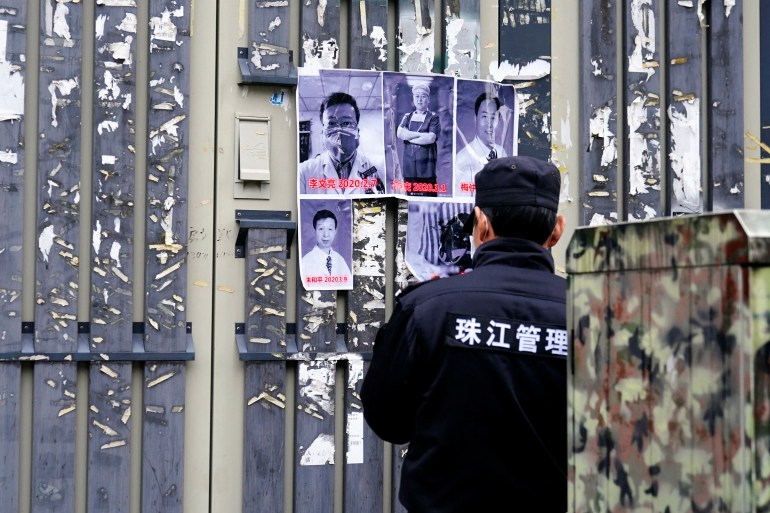A honeymoon in Western Tibet got here to a tragic finish in October when the newlyweds crashed their automotive on a mountain highway after struggling altitude illness.
Sitting within the passenger seat, 27-year-old Yu Yanyan from Shanghai was badly injured.
Regardless of being transferred to an area hospital, fast haemorrhaging and an absence of sufficient blood shares meant that she was unlikely to make it.
However drawing on the couple’s community and connections, Yu’s husband was capable of safe blood donations from native civil servants and members of the general public in that space of Tibet that helped to stabilise his bride.
Yu’s father then organized a chartered airplane to fly her to a bigger hospital for extra superior surgical procedure.
The operation to avoid wasting Yu’s life was a outstanding effort in China – the place many lack entry to high quality healthcare – particularly in distant areas, equivalent to Tibet.
Some additionally stated it was unbelievable.
Success tales meet a sceptical Chinese language public
Bai Xinhui, who can also be from Shanghai like Yu, started to comply with the story after a now-recovering Yu posted a video about her near-death expertise.
“It was actually lovely to listen to how so many individuals labored collectively and contributed to saving her life,” Bai, a 26-year-old UX designer, advised Al Jazeera.
On the similar time although, Bai was left questioning whether or not ”an everyday individual might get a lot assist”.
“Perhaps her husband and her have superb connections or come from very wealthy households,” Bai stated.
“Perhaps it’s all true, perhaps it’s solely half true,” she stated, suspicious that a number of the particulars of the rescue might need been altered to make public officers seem in a extra constructive gentle.
“It’s generally troublesome to know what to imagine and who to imagine in China nowadays,” she added.
Bai shouldn’t be the one one who has contemplated the circumstances and particulars of Yu’s ordeal.
When the story gained nationwide media consideration and went viral on Chinese language social media in November and December, folks began to ask questions.
“How had been they capable of contain so many individuals to assist her and the way had been they capable of do it so quick?” requested Li Xueqing, a 31-year-old advertising and marketing specialist from Suzhou.
“Chinese language healthcare could be very unhealthy in lots of locations, so I don’t assume Yu’s story exhibits how sufferers in her scenario are usually handled,” Li stated to Al Jazeera.
Yu’s survival has shifted from the story of a dramatic rescue to symbolising entitlement and privilege in modern China, with some referring to her because the “Shanghai princess” in Tibet.
The story turned so outstanding that it resulted in Chinese language authorities and media wanting into indicators of wrongdoing relating to the assets mobilised to avoid wasting Yu.
Thus far, there may be little proof suggesting that any abuse of positions or energy performed a task.
Across the similar time that Yu’s rescue was being dissected by a sceptical on-line group in China, one other story about overcoming unbelievable odds started trending on Chinese language social media.
It too was met by equally cheerless responses.
A lottery participant within the central Chinese language metropolis of Nanchang gained the equal of virtually $31m from the state-run Welfare Lottery in early December.
The winner had reportedly spent a sum of $14,000 on almost 50,000 units of an identical lottery numbers that every gained him roughly $625.
Moreover, his whole winnings had been tax-free because of the comparatively small prize cash on every particular person wager.
The circumstances immediately raised suspicions.
“He in all probability had assist from somebody on the within,” one consumer on the Chinese language social media platform, Weibo, speculated.
Each China’s healthcare sector and the state lottery have beforehand been suffering from tales of embezzlement and corruption.
“There’s some huge cash taken and bribes given in lots of sectors in China, so after all we’re suspicious,” Li from Suzhou stated concerning the incredulous effort to rescue Yu in Tibet and the unprecedented lottery win in Nanchang.
The outpouring of public scepticism additionally suggests an absence of alignment between successes in life and the experiences of on a regular basis Chinese language folks, stated Jodie Peng, a highschool instructor from Shenzhen.
“Most individuals haven’t gained massive within the lottery or skilled a complete group serving to them throughout a medical emergency,” she advised Al Jazeera.

Peng additionally had her personal religion in China’s healthcare system examined in recent times.
Her grandfather died final 12 months from COVID-19 in a crowded public hospital earlier than overworked medical workers had an opportunity to correctly are likely to him. Peng additionally fell sufferer to medical fraud in reference to post-surgery remedy she acquired a couple of years again.
“So, after all, it was good to listen to concerning the lottery winner in Nanchang and the profitable rescue of the Shanghai girl in Tibet. However these issues don’t occur within the Chinese language world that I stay in,” she stated.
China’s party-approved ‘constructive vitality’ tales
Based on affiliate professor Yao-Yuan Yeh, who teaches Chinese language research on the College of St Thomas in the US, tales that flow into in China’s media and on-line usually replicate the specified narratives of the ruling Chinese language Communist Get together (CCP) extra so than the lived experiences of the general public.
“The Chinese language web is full of tales backed by the Chinese language state,” Yeh advised Al Jazeera.
China’s leaders have repeatedly referred to as for the media to disseminate tales with “constructive vitality” to elevate up and encourage folks.
With the web closely surveilled and controlled in China, tales and commentary that don’t assist the mandates of the federal government will be rapidly eliminated by censors with out warning or clarification.
So, when public knowledge confirmed that Chinese language youth unemployment was hitting a document 21.3 % in June, China’s censors shut down crucial discussions concerning the figures on-line and eliminated unfavorable feedback concerning the state of the Chinese language economic system.
The next month, the publication of China’s youth jobless knowledge was suspended.
Combatting ”negativity” has additionally resulted within the authorities concentrating on people.
When a Wuhan-based physician, Li Wenliang, started to warn colleagues in early December 2019 concerning the emergence of a virulent respiratory sickness that might later come to be often known as COVID-19, he was arrested by police for “spreading rumours”.
Li would succumb to the virus a couple of months later.

The lengths that some are prepared to go to stifle unhealthy information in China drew ridicule on-line final 12 months when a scholar at a university in Nanchang found a rat’s head in his cafeteria rice meal, which canteen workers, the varsity and an area meals supervision bureau all claimed was duck meat.
The catering firm then threatened authorized actions towards anybody “spreading rumours” about their meals, whereas college students had been advised by faculty workers to not focus on the rodent’s head within the rice.
“When these in energy even attempt to cowl up a rat head, it’s troublesome to belief something you hear or see within the media,” Li from Suzhou stated.
Peng from Shenzhen concurred.
“There are such a lot of issues in China proper now with the economic system, with corruption, and with many different issues,” she stated.
“You may’t cover all of it behind some constructive tales,” she added.
“We should always be capable to brazenly focus on China’s issues in any other case the dearth of belief is simply going to unfold.”

